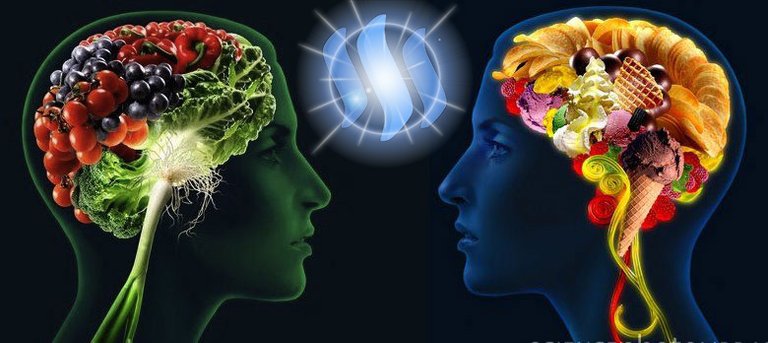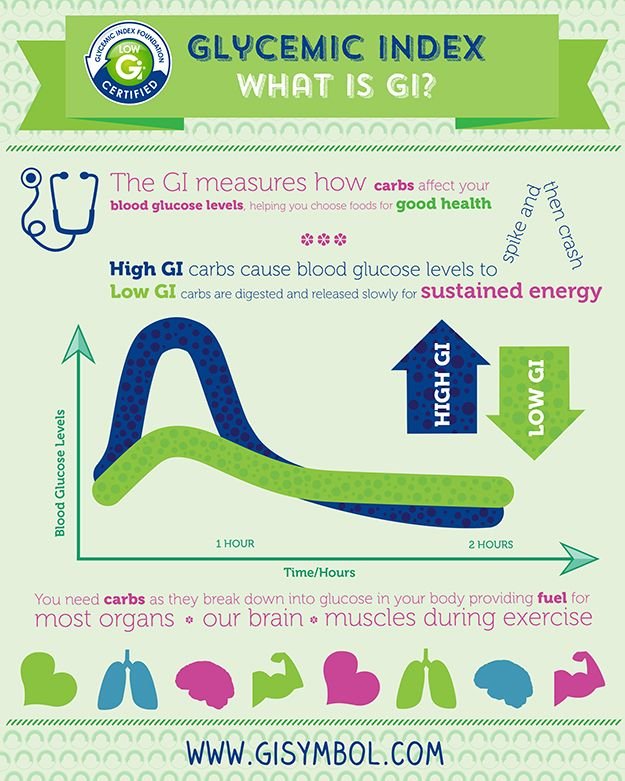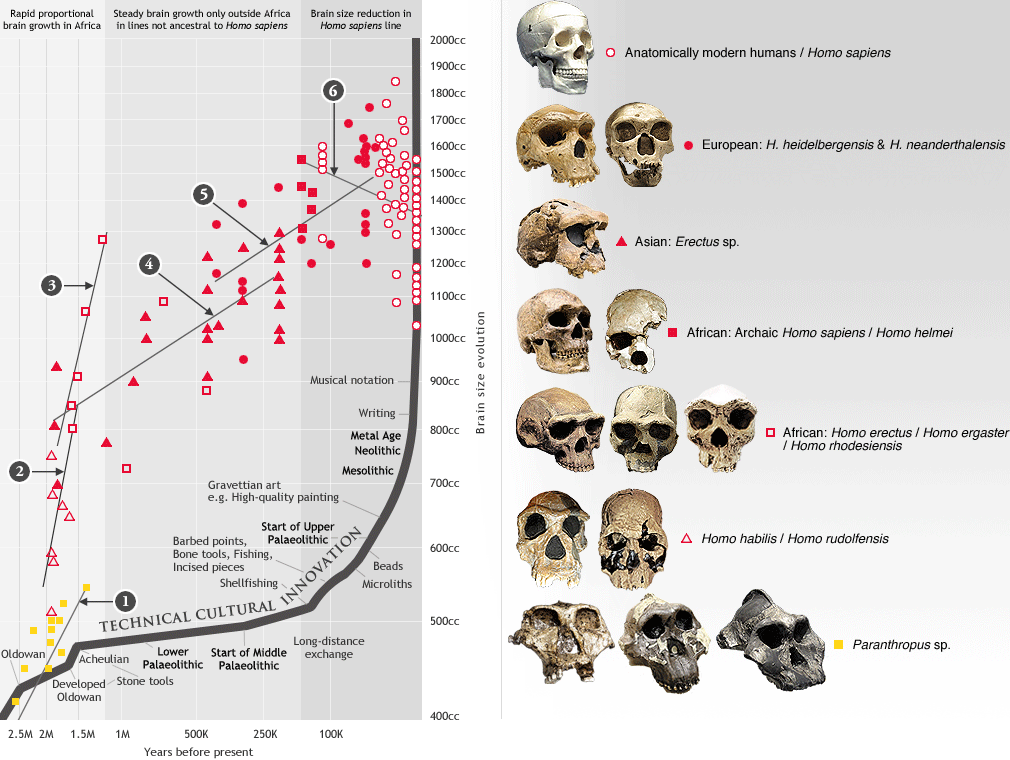
We've all heard of the saying "You are what you eat".
And while we somehow know that sugar makes us hyper and caffeine keeps us awake,
Do you really know what affects certain foods can have on your brain?
There are good and bad fats.
Healthy fatty acids like Omega 3 and 6 are contained in fish, nuts and seeds.
They are essential to your brain health because they are needed to create new cell membranes.
"Bad" fats on the other hand are saturated and trans fats.
They can actually decrease brain health!

Proteins and amino acids, which we intake through our food, have a great impact on our behaviour and well-being.
Amino acids are what carry the precursors to Neurotransmitters - the signals that transfer information between the neurons.
They are very important and can affect our sleep, mood and attentiveness.
So food has a direct link to how we feel - that's why you might experience alertness after a protein-packed meal with chicken, or feel fatigue or calmness after eating a large amount of carbs like pasta.
This educational video by Ted-Ed demonstrates us visually how food affects our brain and mood:
So like explained above, a combination of different foods can stimulate your brain to release different neurotransmitters that change your mood - for example Serotonin, Dopamine, or Norepinephrine.
But since there is limited access to your brain cells, different amino acids actually have to compete for it.
A balanced diet that contains different foods with different nutrients is the healthiest option for keeping your brain messengers intact.
Our Brains are in need of a continuous supply of Micronutrients.
For example Anti-Oxidants, that help prevent brain damage from free radicals.
Other important Micronutrients are Vitamins B6 and B12 and folic acid - without them, our brains would be much more prone to diseases and mental decline over time.
Mineral intake like copper, iron sodium or zinc is also an important part of brain health and the early development of cognitive skills.

Our Brain manages to transform all of these nutrients - a difficult task that takes up a lot of energy.
Our Brains use up to 20% of our Body's energy resources, while they only take up about 2% of our body weight!
This energy is created by the process of transforming and digesting carbs into glucose.
There are 3 different types of carbs: Starch, Sugar and Fibre.
These are often just categorized together as one group, but the ratio of sugar and fibre is actually an important factor of how the brain will react to the food.
White Bread for example supplies us with a large amount of glucose in a short period of time, which is great at first, but then our glucose levels drop down again and our mood and attention span get affected in a negative way.
Other foods that have a slower release of glucose are grains, oats and legumes. These can help us maintain a rather steady level of attentiveness and well-being.

We can also see how important energy is to our brains when we look back at our evolutionary history:
Our Brains need high-energy foods as their "fuel".
When looking back at our evolutionary history, we can see that the Australopithecus (a much older relative of the Homo Sapiens) had brains that were only about 35% of the size of our brains. From their teeth and stomach, researchers suggest that they ate mostly fruits and vegetables, which are not very high in calories.
Eventually the Australopithecus went extinct 2 million years ago, and its descendant, the Homo Habilis, whose brain was about 50% bigger than that of the Australopithecus.
Why? Because that was right around the time when humans started to control fire, so now they had the ability of eating meat without risking a disease.
Meat meant that there was a lot more energy to be used by the brain, so it grew during the evolutionary process.

Whatever you put into your body affects your brain health, mood and abilities, so a balanced and nutrient-rich diet is a key factor for our brain's functionality and our overall well-being!
- Instagram -

© Sirwinchester
"The Secrets of Sugar - The Fifth Estate" - CBC News
Sugar in itself is not nasty, but the use of sugar in nearly all products by entities to "hook" consumers to profit from sales turned out disastrous.
The over-eating problem is the outcome from the effects the sugar to the brains, but this problem has been blamed on individuals' overindulgence in food. Sugar are frequently compared to drugs in terms of the way it hooks the brains- both the sugar and drugs bring in consistent profits.
See Legal Ways To Get Addicted Children- A Plan For Future Revenue
very interesting, thank you for the input!
Hmm, informative post on the whole. Anything that encourages people to eat real food is a good thing.
But a couple of things I would take issue with.
Firstly, the lumping together of saturated fats and trans fats as harmful. They are totally different things with different effects on the body. There has never been any proof that saturated fats are harmful. Our ancestors had large amounts of saturated fats with no ill effects, and the sat fat myth has been well and truly debunked. In fact our brains contain a lot of saturated fat and cholesterol. I believe that one of the contributors to the high number of elders with Alzheimers and dementia is chronic deficiency of saturated fat.
Not saying that your omega 3 & 6 are not important. But they are needed in much smaller amounts than sat fats.
Next the GI index. This was a popular diet fad twenty years ago. But now we know that what's a lot more important is the GL - glycemic load. This takes into account everything you eat in the meal, not just the carbs. For eg, if you eat a meal with a pile of "healthy" low GI carbs, if you're not balancing it with protein and fat, it could be a higher GL than a meal with smaller amounts of a higher GI food, that has been balanced with protein & fat.
"I believe that one of the contributors to the high number of elders with Alzheimers and dementia is chronic deficiency of saturated fat."
As much as I hate to, I have to agree w/ you on that... LoL~
In fact, it's Sugar, in terms of Carbs, and not just sugar the sweetener...
Source Article By Dr. Mercola here
I actually think lack of saturated fat, and too much sugar/carbs are two quite different contributors. They're related as they often go together in the diet, but the actions are different. There are many other contributors as well of course.
I'm a coco-nuts~
=P
Nobody knows exactly how and what to eat to be healthy, mentaly and physicaly, thats why the doctors are getting richer on ower expence. Of course the chemicals in the foods don't help :D.
A lot of people don't know much about nutrition at all (and maybe don't care about it) although it's such an important part of our well-being!
I changed my diet about 20 years ago. It makes a word of difference.
that's great to hear that it improved your life quality, good for you!
that's so interesting, I didn't know it was CARBS that made me so tired after eating!
heavy, fatty foods in general make us feel tired because our body focuses its energy on digestion
great topic choice. the food we intake plays such an important role that many underestimate. it's not only about weight, but about having a healthy brain!
exactly, and that's more important than just weight loss!
the glycemic index sounds very very interesting, I've been wondering about a factor like that!
if you're really interested you should look into it and the foods that stabilize it!
so if we ONLY eat with an extremely low amount of calories, it'S actually not that healthy for our brains!?
sounds like a great justification for me to eat my chocolate :D
that's true, but it's sadly not as simple as that.
Most people will still reach their calorie intake for the day, even if they're on a diet
carbs are important energy suppliers to our brains, but at the same time enemies of our weight loss plan!
that's right, it's an inner conflict!
nutrition is sooo important to us yet most people know so little about it! it should really be taught in schools!
exactly.
but then again, so many important things should be taught in school that aren't ..
food really does impact your mood, it can either make you feel more energized or tired! very interesting topic!
definitely, we just don't notice it a lot of the time because we can't see the connection!
om du äter bra Mat du har bra humör ,, mycket intressant Bravo
very comprehensive post.
As usual, btw :)
Interesting topic! Thank you for the info about carbs..